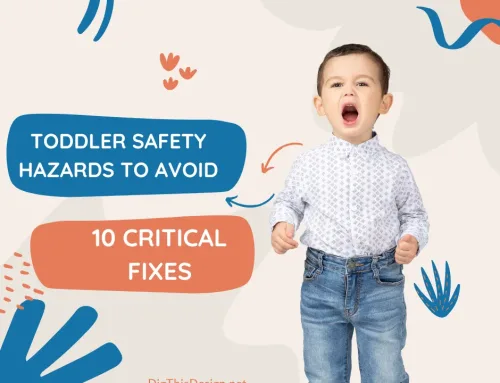Just like eating healthy and exercising, a good night’s sleep is essential for your overall well-being. Sleep deprivation can prevent you from losing weight and allowing your body to recharge, leaving you refreshed and ready for a new day.
Unfortunately, several factors can interfere with your natural sleep pattern. Pain, anxiety, and other medical conditions can impact the structure and depth of your sleep. Your bedroom environment is also likely to influence the quality and quantity of your sleep.
The Benefits of Tracking Your Sleep | Why It’s Important
Why is Sleep Essential for Your Well-Being?
Sleep helps your body stay healthy to stave off diseases. Sleep helps your brain function properly. The amount of sleep you require depends on how old you are:
New-born (ages 0-3 months) require 14-17 hours of sleep
Infants (ages 4-11 months) require 12-15 hours of sleep
Toddler (1-2 years) need 11-14 hours
Pre-school (3-5 years) require 10-13 hours
School-age (6-13 years) require 9-11 hours
Teens (14-17 years) need 8-10 hours
Young adults & adults (18-64 years) require 7-9 hours
Older adults (64+ years) require 7-8 hours
You require each night’s sleep for proper cognitive and behavioral functions. An insufficient amount of sleep can leave you vulnerable to attention lapses, delayed reactions, reduced cognition, and mood shifts.
What Can Happen if You Are Sleep-Deprived?
You might have experienced a zombie-like feeling after a night of minimal or no sleep at all. A night without enough rest can make you feel drowsy during the day, slow down your thinking, and lack energy.
Sleep deprivation happens when you don’t get the right amount of sleep you require. While you can quickly notice the short-term effects of sleep deprivation, chronic sleep deprivation can increase the risk of physical and mental health problems.
Several Factors that Can Cause Sleep Deprivation:
- Poor sleep hygiene
- Work obligations
- Sleep disorders
- Lifestyle choices
- Medical conditions
These conditions can affect the quality of sleep you get. Personal decisions such as staying up late to watch a TV series can also cause acute sleep deprivation.
It is no secret that a good night’s sleep makes you feel better and can also influence your brain’s ability to learn and remember things. During sleep, your brain processes daytime information to form memories. However, if you don’t receive adequate sleep, your brain’s ability to retain new information is affected.
Anxiety is often linked to sleeping problems. When you worry too much, you will find it hard to fall asleep. Sleep deprivation can worsen anxiety and prevent recovery from an anxiety disorder. Sleep deprivation can also lead to lower alertness and concentration, making it difficult for you to focus.
Poor sleep can lead to unhealthy habits that can hurt your heart. Sleep deprivation can increase the risk of heart disease and stroke, especially if you are a victim of underlying conditions such as hypertension, type 2-diabetes, and obesity.
Sleep deprivation can also be linked to reduced sexual desire. Rest and sleep are vital because the hormone testosterone-which is responsible for solid libido, is produced when you sleep. When you don’t get adequate sleep, your metabolism slows down, leading to weight gain.
You can help prevent sleep deprivation by taking naps responsibly, limiting screen time, and developing and sticking to a sleeping schedule. If you feel your mattress is not supportive enough, find options from Nolah Mattress and find the proper sleep position that keeps your spine aligned and allows you to breathe freely.
How Can Sleep Tracking Help You?
Sleep tracking is a process of monitoring your sleep through tracking body movements to determine how much time you spent awake versus sleeping. It can help you make better decisions on your health, clear away some doubts, and leave you focused on the quality of rest you require.
Sleep tracking can help you understand your body’s sleep cycle. A tracker will tell you when you fall asleep and when you wake up. Since the tracking device can give insight on how much tossing and turning you make in a night, it can be instrumental in detecting potential sleep disorders.
Wearable trackers can provide lifestyle and fitness tracking. This means you can get insights into your physical health and overall lifestyle and encourage keeping active and improving your overall health. Sleep is an essential feature of mental health. Tracking your sleep can help you assess sleep patterns and abnormalities. When corrected, they can lead to better mental health.
Recognize the Importance of Sleep
Sleep is far more beneficial in the long run than anything that keeps you awake till 3 a.m. Therefore, always make sleep a priority by having a consistent sleep schedule, setting boundaries for your work and social life, and creating and maintaining a bedtime routine.
Final Thoughts
A good nights sleep is essential for your bodies health. Sleep deprivation and restlessness can have negative side effects on your body. However, there are outside factors that can cause sleep deprivation, such as poor sleep hygiene, work obligations, lifestyle choices, medical conditions, and sleep disorders. Awareness is key to any life problems you may be encountering. Therefore, tracking your sleep can be beneficial to know how much rest you are getting each night which can be beneficial to your health.
Other Posts You Might Enjoy:
8 Ways to Make Your Sleep Environment More Comfortable
Personal Finance Tips: How to Keep Track of Bills and the Money You Make





